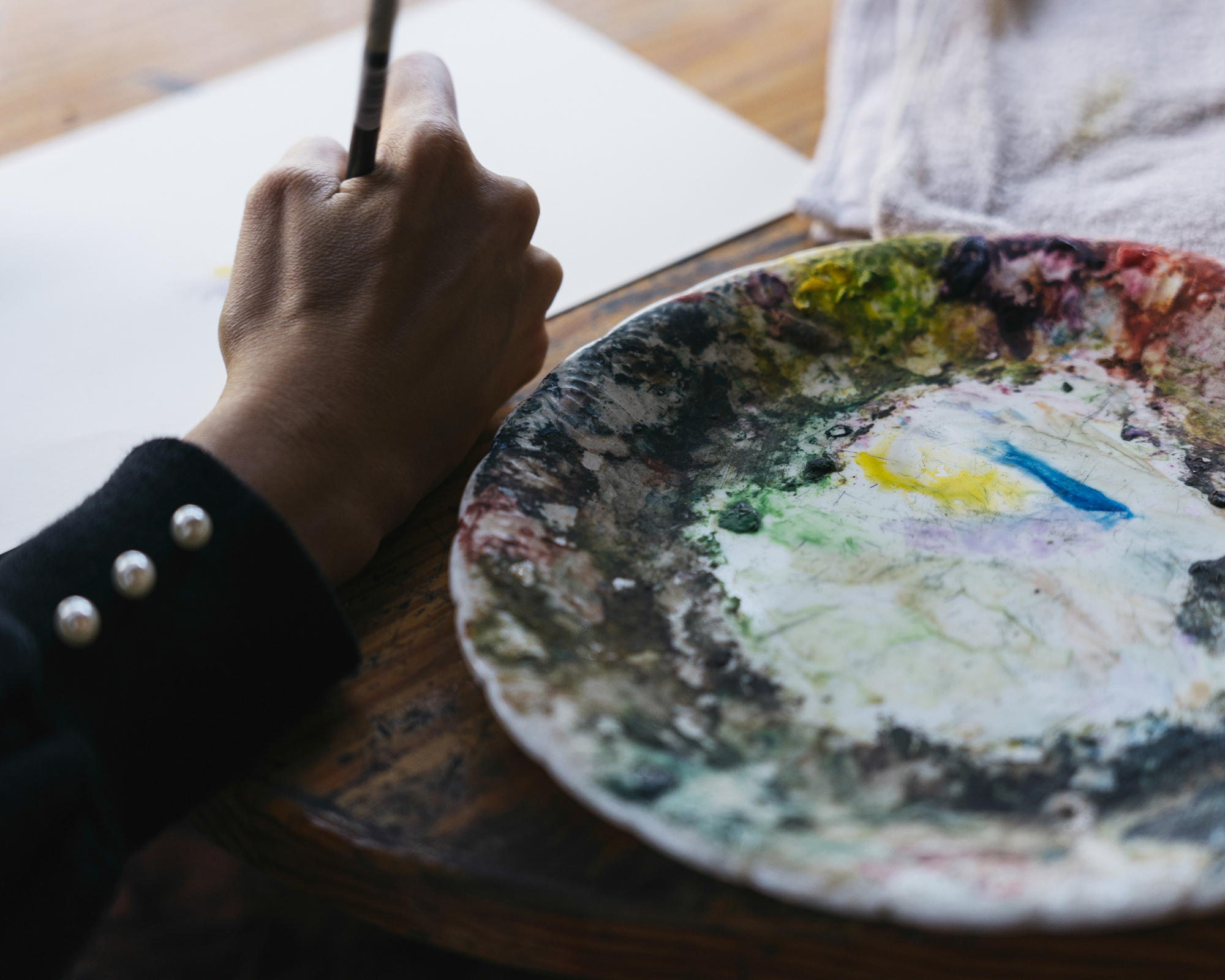
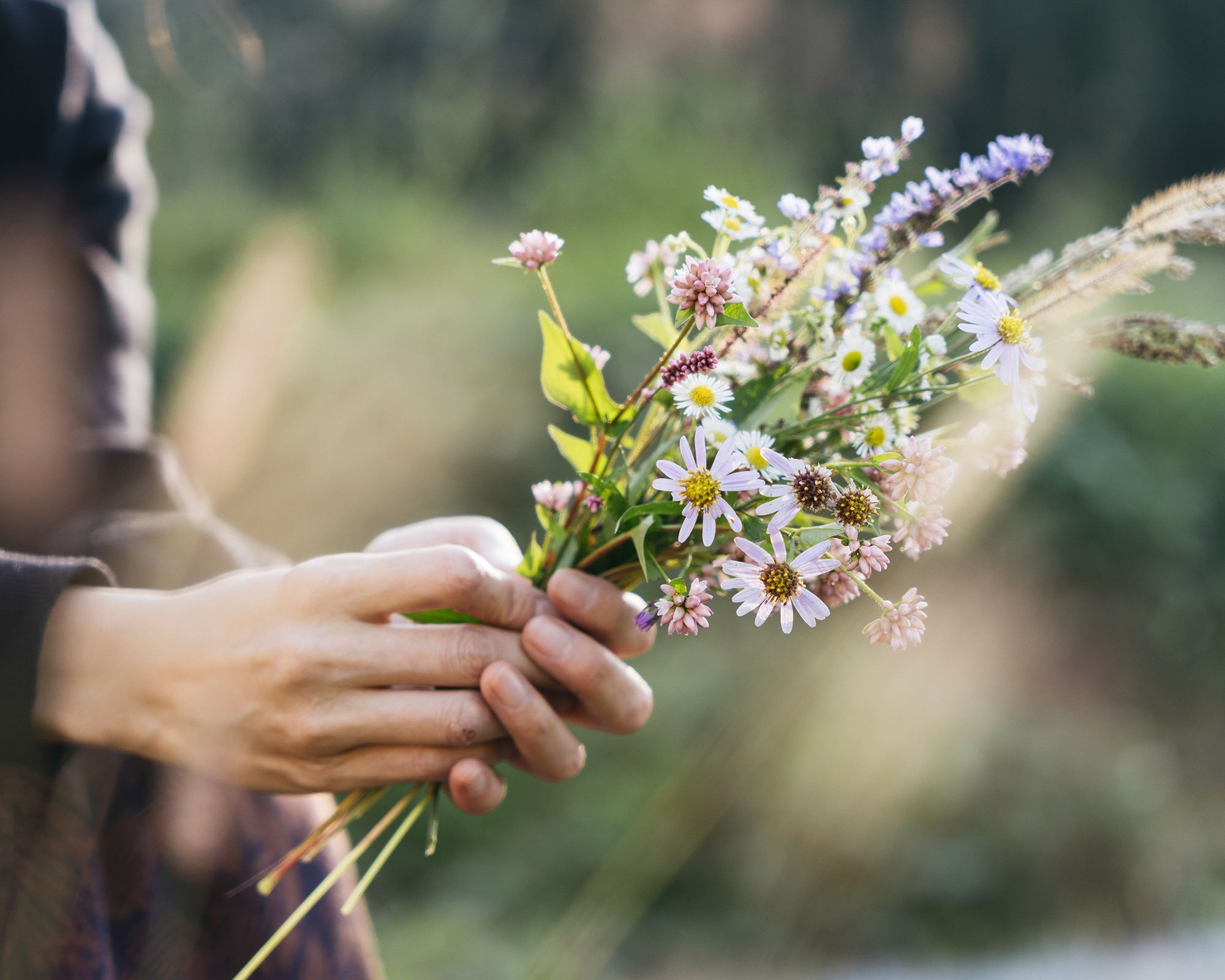
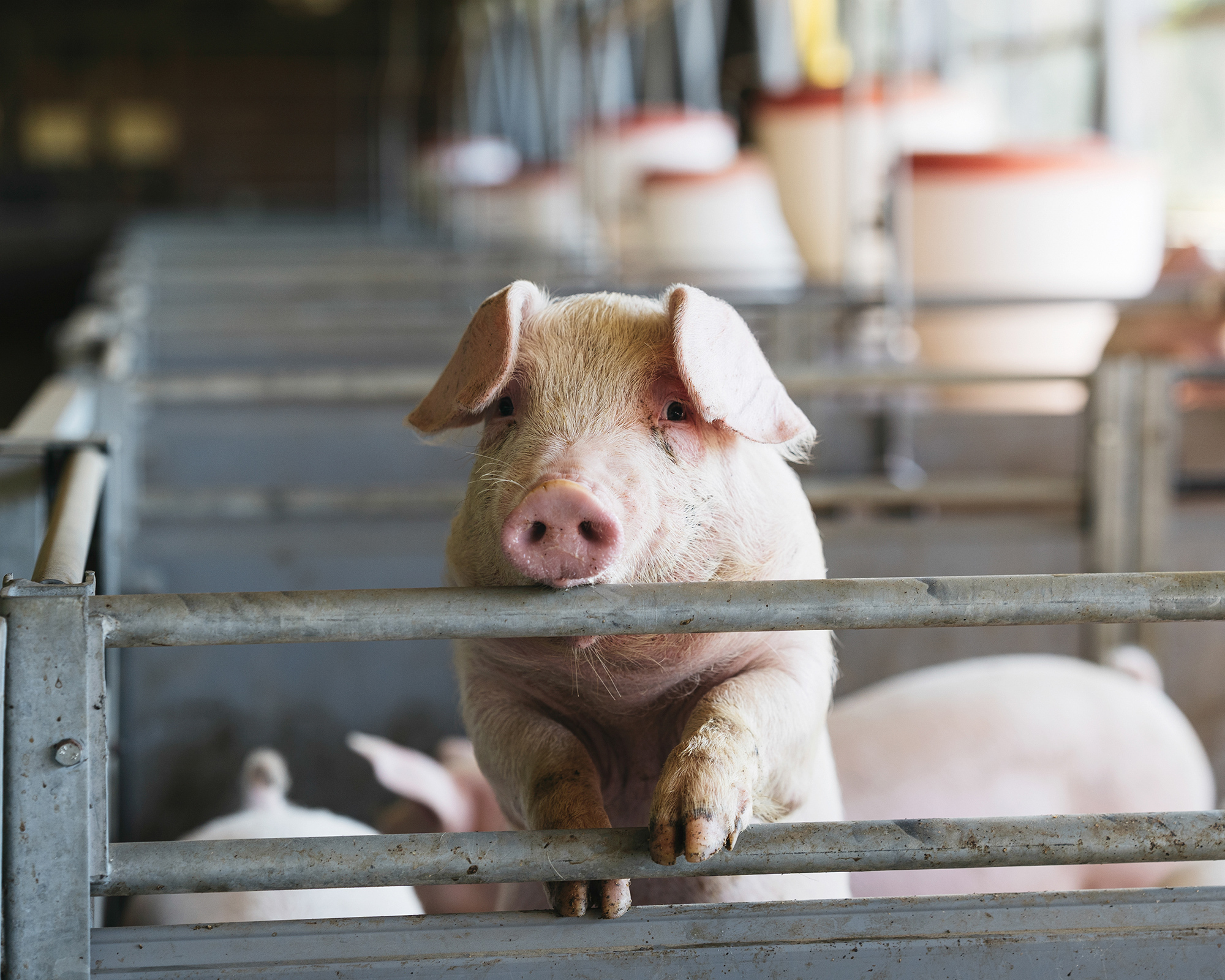
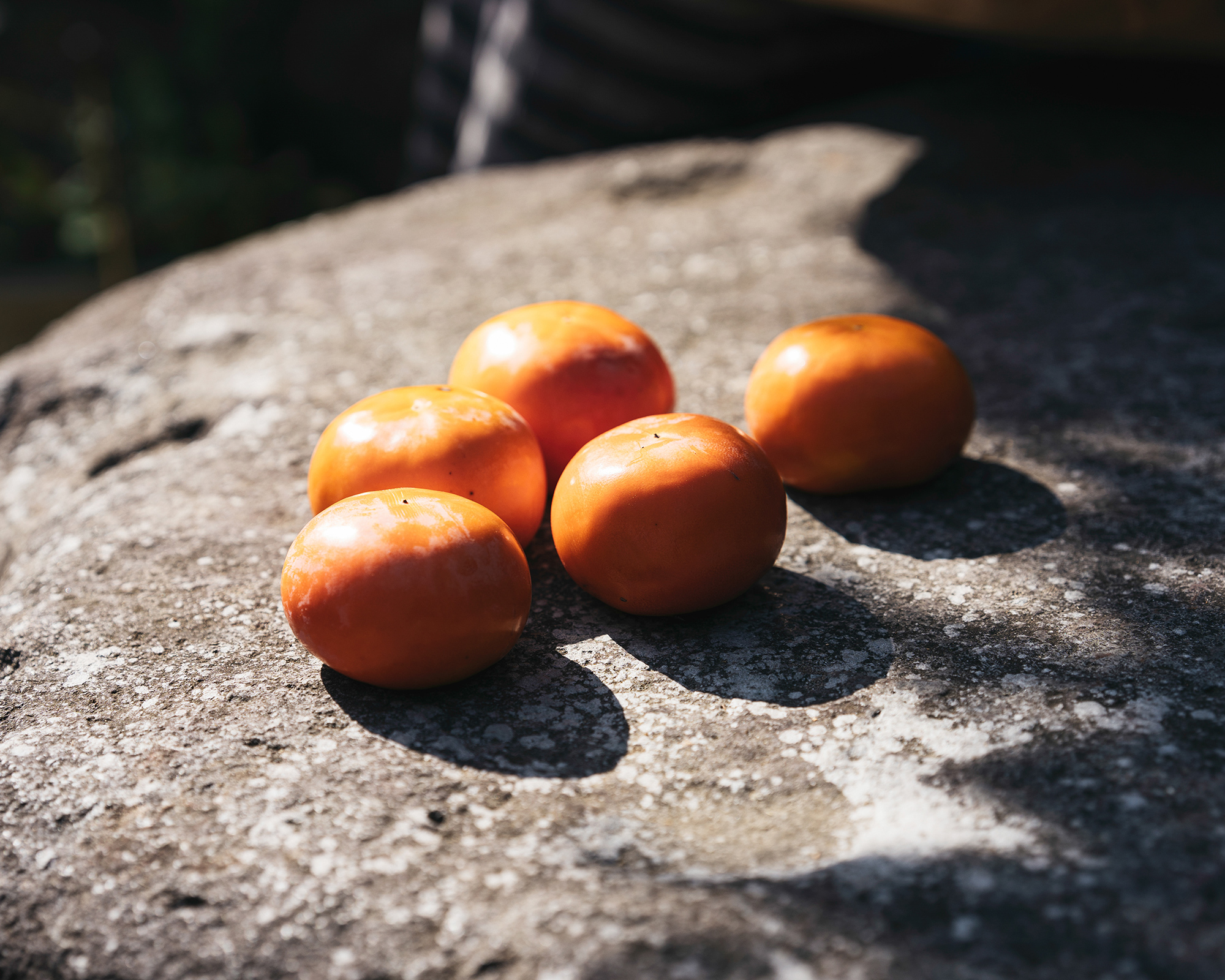




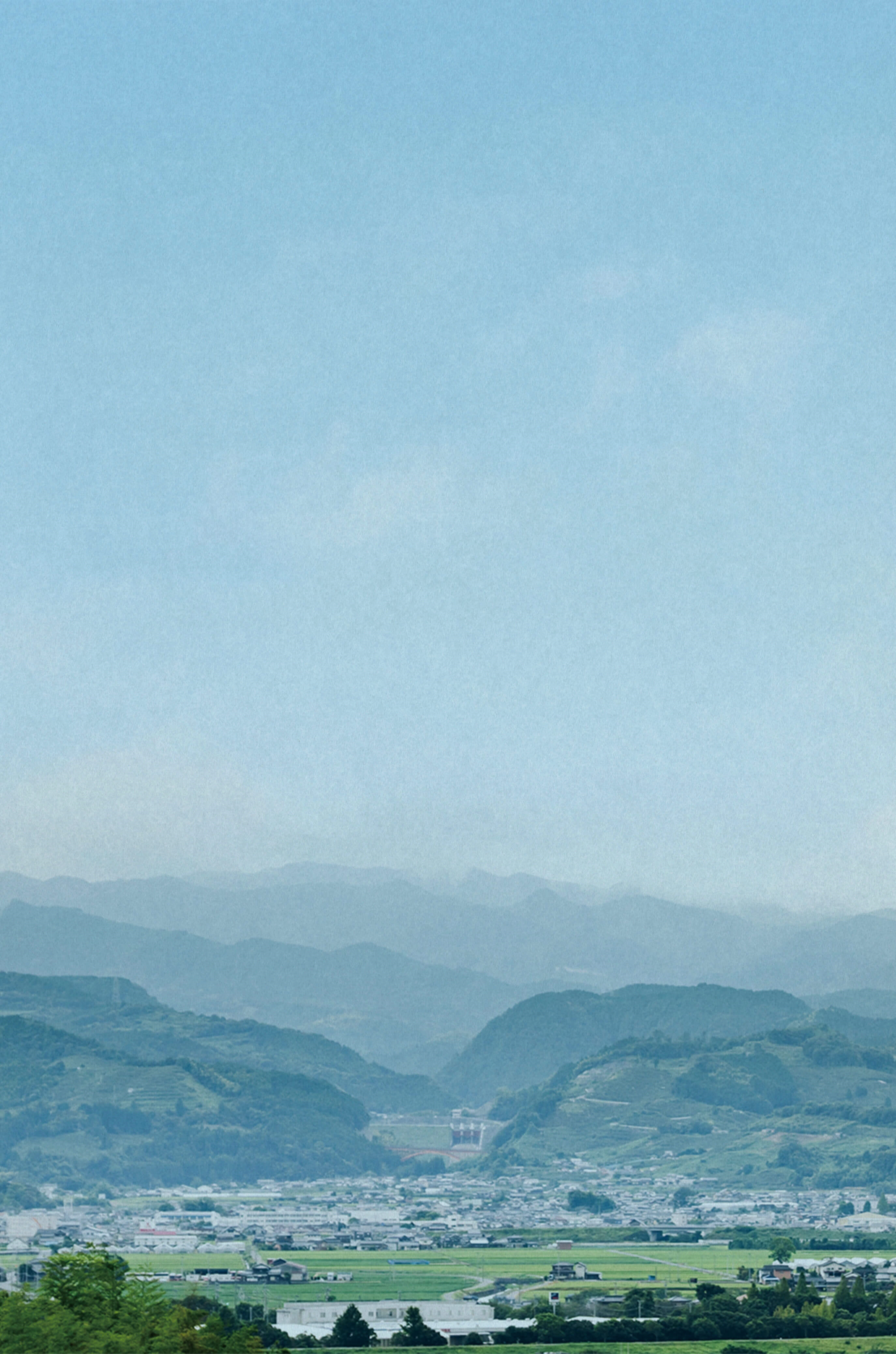
The landscape of a place is made up of a number of elements.
Geography, natural environment, history,
culture, and connections with all things...
Each one of them influences each other little
by little to form the "this moment".
It is as if several streams of water gather together and blend into one,
forming a large river gently.
Ukiha has its own life story that handed down over generations.
Gently. Touch if as if you were peeking.
Life flows in Ukiha.

In the past, Mt. Aso erupted several times and volcanic ash fell on this place.
The Minou mountain range was created by repeated major earthquakes that occurred once every tens of thousands of years, gradually increasing in height.
Many large and small rivers flow in the mountain.
The Chikugo River, which continues from Mt. Aso, changes its flow every time of heavy rain and swallows the plain land many times along with other small rivers.
Many alluvial fans were built and grew into fertile soil, and the terrain of Ukiha was built over the years.
People began to live in the foothills and in the mountains.
By collecting and damming small amounts of spring water and rainwater, they developed a method to take advantage of the rugged terrain of the mountains, and gradually carved out the mountains to build terraced rice paddies and settlements to grow crops such as rice.
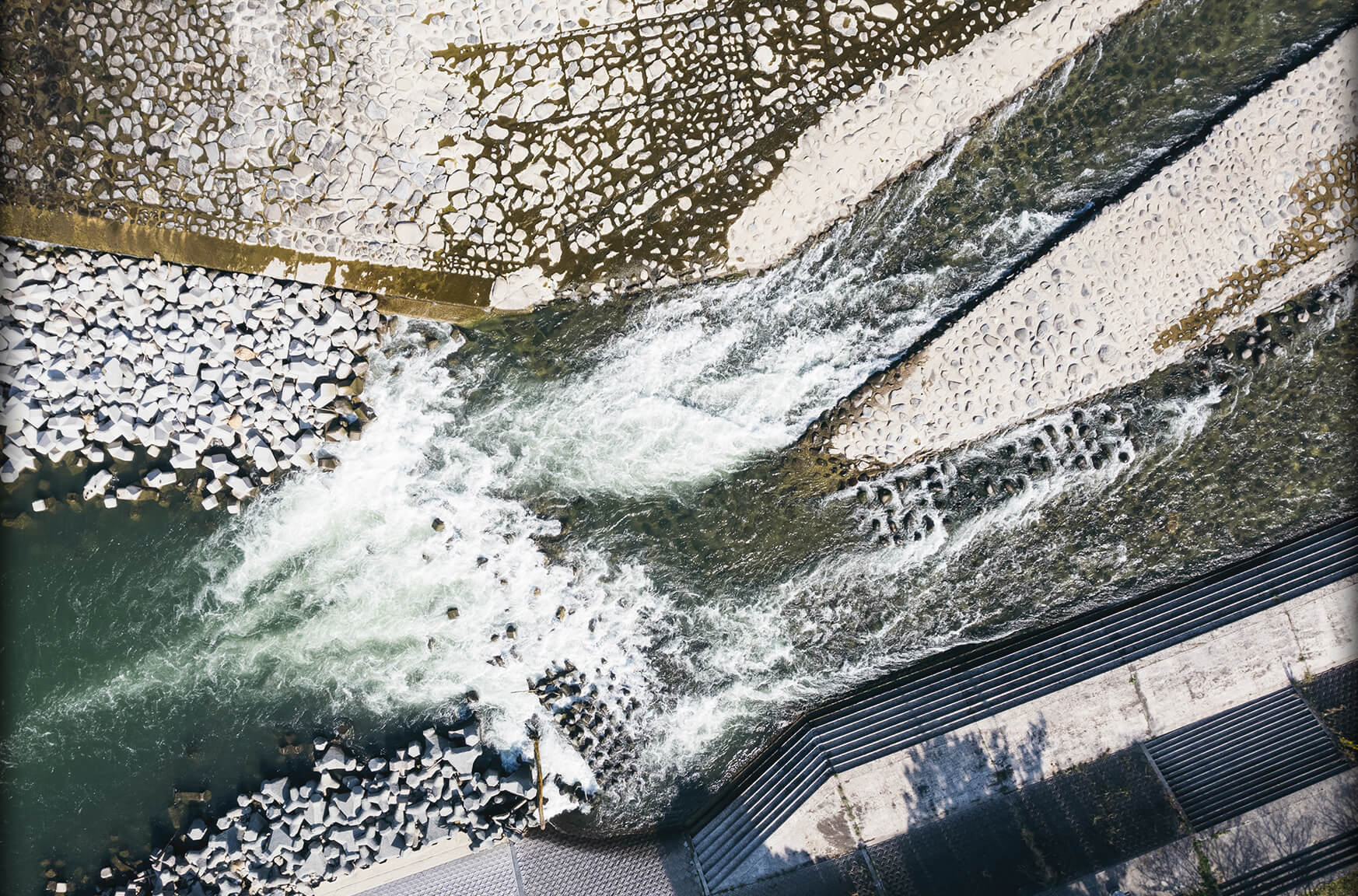
When people began to live on the banks of the river flowing through the plains, the living of inhabitants of the mountains and the plains, upstream and downstream started to intermingle followed by creation of the gateway to them each other, and new flow of people was born.
They took a break before crossing the mountain, changed boats to match the speed of the river, or sold what was harvested in the mountains and rivers on the plains, the gateway gradually became an important hub for trade and transportation.
There were many disputes over the geographical interest.
However, they could not make full use of the water like a mountain people, and the life on the plains was not getting better easily. The river often rages. When the conflicts settled down and entered the Edo period (1603-1868), the people who were attacked by severe floods and poor harvests finally decided to use the water of the Chikugo River for their livelihoods.
A number of difficult works were completed, such as the construction of 150 km-long canal, a stone weir, and a tunnel-like canal made dug into bedrock.
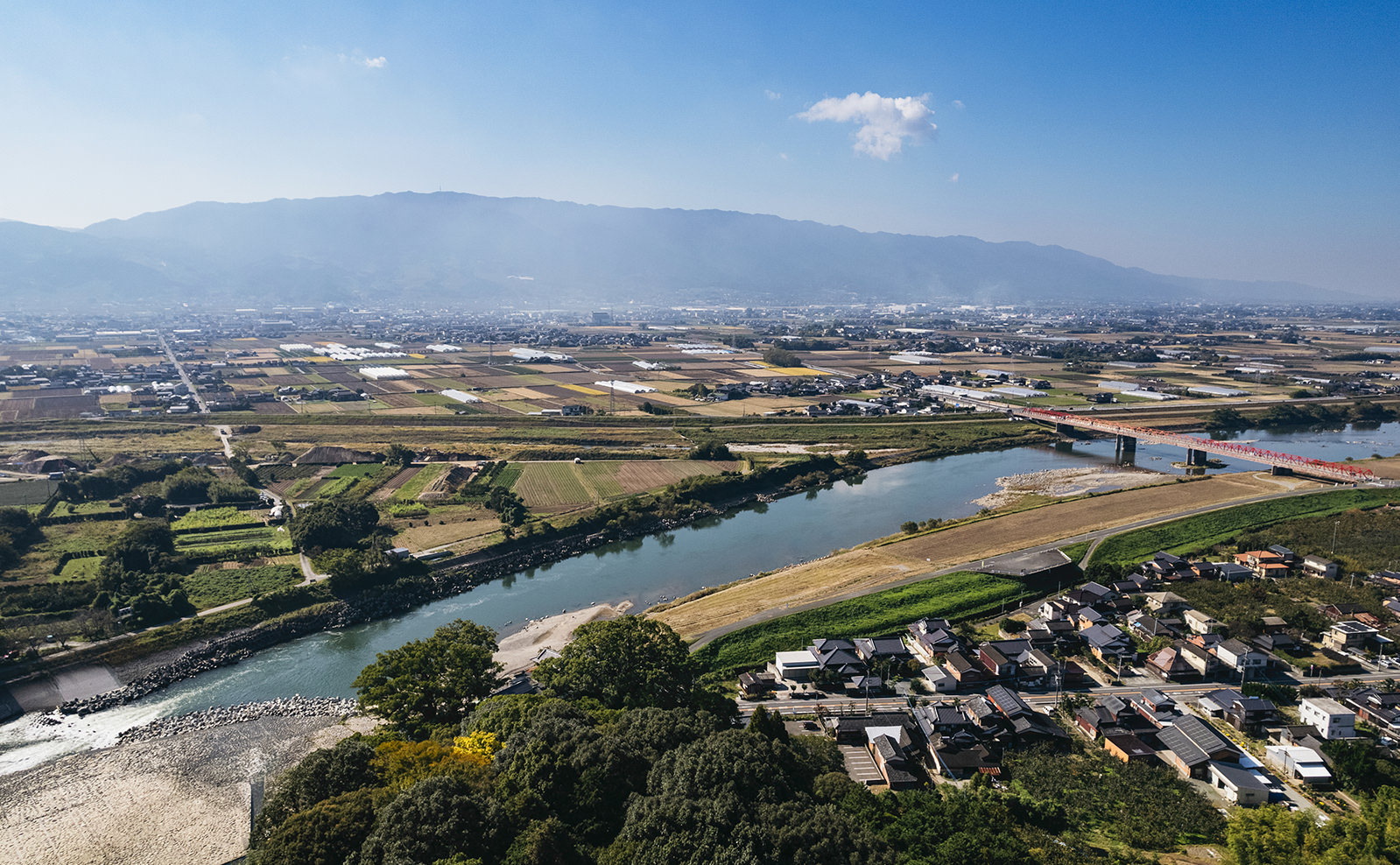
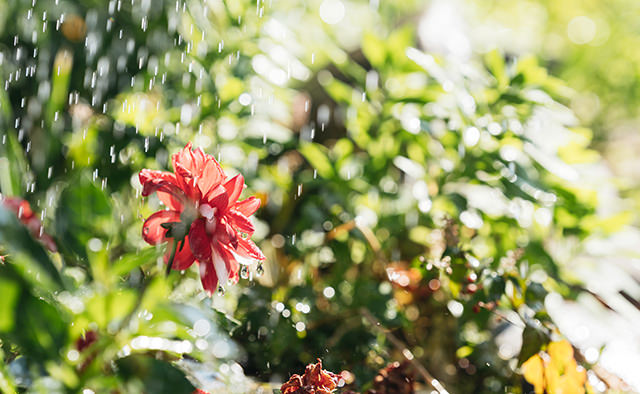
As the network of waterways were built, many crops could be grown, and the processing of crops was powered by water.
Water wheels were used in many situations, including flour milling, noodles, food stuff such as tea, sake and sugar, or daily necessities such as oil, wax and lumber.
As more high-quality goods produced by abundant groundwater, the wealth accumulated in the place, where buildings shifted from thatched-roofed to sturdy and gorgeous white-walled.
People have always been practicing how to live by making good use of the environment they were in at the time.
And even today, the story of Ukiha goes on and on.(By Wakaba Takekuma)
Uchigaharu-Kenji Higuchi and Mieko Higuchi
In 1998, he founded "Dendenmushi," an organization that connects rice terraces, together with volunteers. Before the COVID-19 pandemic, it accepted more than 80 people a year and conveyed the life of satoyama, an undeveloped woodland near a settlement. Currently, the activities have developed into a village-wide effort. The crops are grown with care and are sold wholesale at the local direct market in the city.
Kurigino-Ai Poelstra
Born in Yoshiimachi, Ukiha City. Soon after her birth, she moved to Niikawa Kurigino, Ukihamachi, Ukiha City.Since childhood, drawing and playing the piano have been part of her life.In 2022, she published a collection of her paintings, "Shiki no Kiseki" (Miracles by Four Seasons).
2403-3 Niikawa, Ukihamachi, Ukiha City, Fukuoka Pref. 839-1413 Japan0943-77-7693 (Erwin Poelstra Piano Class)
Gosho-Norio Ishibashi and Yukiko Ishibashi
Growing pears and apples in the mountains at an altitude of 300 meters. By growing them with organic fertilizers and reduced pesticides, ripening them on the trees, to harvest , it aims to bring out the original flavor of fruit trees, and to produce safe, and delicious fruits. You can buy them at the direct sales shop or at the local direct market in the city.
(Direct sales shop) 5444-1 Kojio, Ukihamachi, Ukiha City, Fukuoka Pref. 839-1412 Japan0943-77-3313
Yamakita-Yukitaka Kawakita
They started making tea from the end of the Edo period. Native tea trees over 100 years old are cultivated without pesticides. Collaborations are progressing in various fields, such as sweets and bread made from Zairai tea, and aromatic water in the sauna. You can purchase it at the local direct market or by mail order.
2056 Yamakita, Ukihamachi, Ukiha City, Fukuoka Pref. 839-1408, Japan0943-77-4019
Mizokuchi-Shoji Shigeoka
In addition to various types of tofu, the shop also handles 20 kinds of konjac and tokoroten made from agarophytes.One of the popular products, okara karinto or fried dough cookie is handmade by his wife Emi. You can enjoy the gentle sweetness of soybeans in carefully selected flavors. You can buy all kinds of products at the the local direct market in the city.
362-1 Fukunaga, Yoshiimachi, Ukiha City, Fukuoka Pref. 839-1305 Japan0943-75-2661
Furukawa-Toshio Kobayashi and Motoko Kobayashi
Founded in 1906. The restaurant is open from 11:00 to 15:00 on Wednesdays to Sundays (closed as soon as the noodles of the day run out). A brown wooden signboard is a sign. Part of the menu can also be purchased as packaged noodle. You can purchase at the store or at the local direct market in the city.
962 Furukawa, Ukihamachi, Ukiha City, Fukuoka Pref. 839-1405 Japan0943-77-2249
Nakanoshima-Katsuya Sugi
Handling from pig farming to the production and sale of processed foods such as ham and bacon, and cafe business. The store is open from 11:00 to 17:00 from Wednesdays to Sundays. Pesticide reduced peaches, grapes, persimmons are used as feed as one of their approaches for raising pigs. You can purchase at the store or at the local direct market in the city.
568 Tachibanada, Yoshiimachi, Ukiha City, Fukuoka Pref. 839-1307 Japan0943-75-5150
Rain falling on a mountain filled with tranquility,wetting the trees and the surface of the mountain,
and one small stream
that flows down the rocks becomes a small river
that descends down the mountain
and eventually flows into a larger river into the sea
The people’s living goes with the water
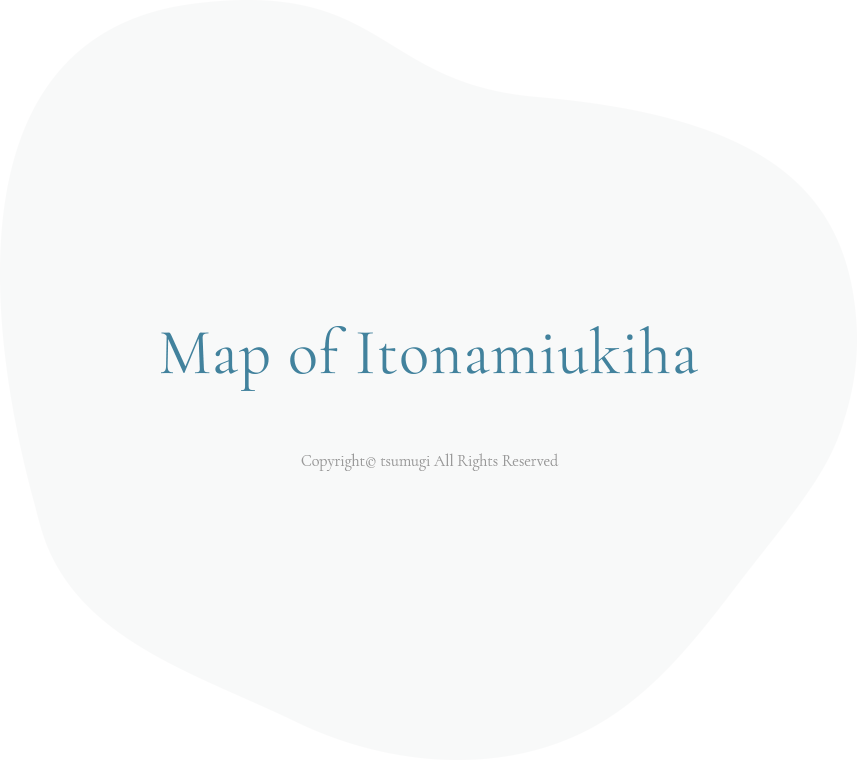
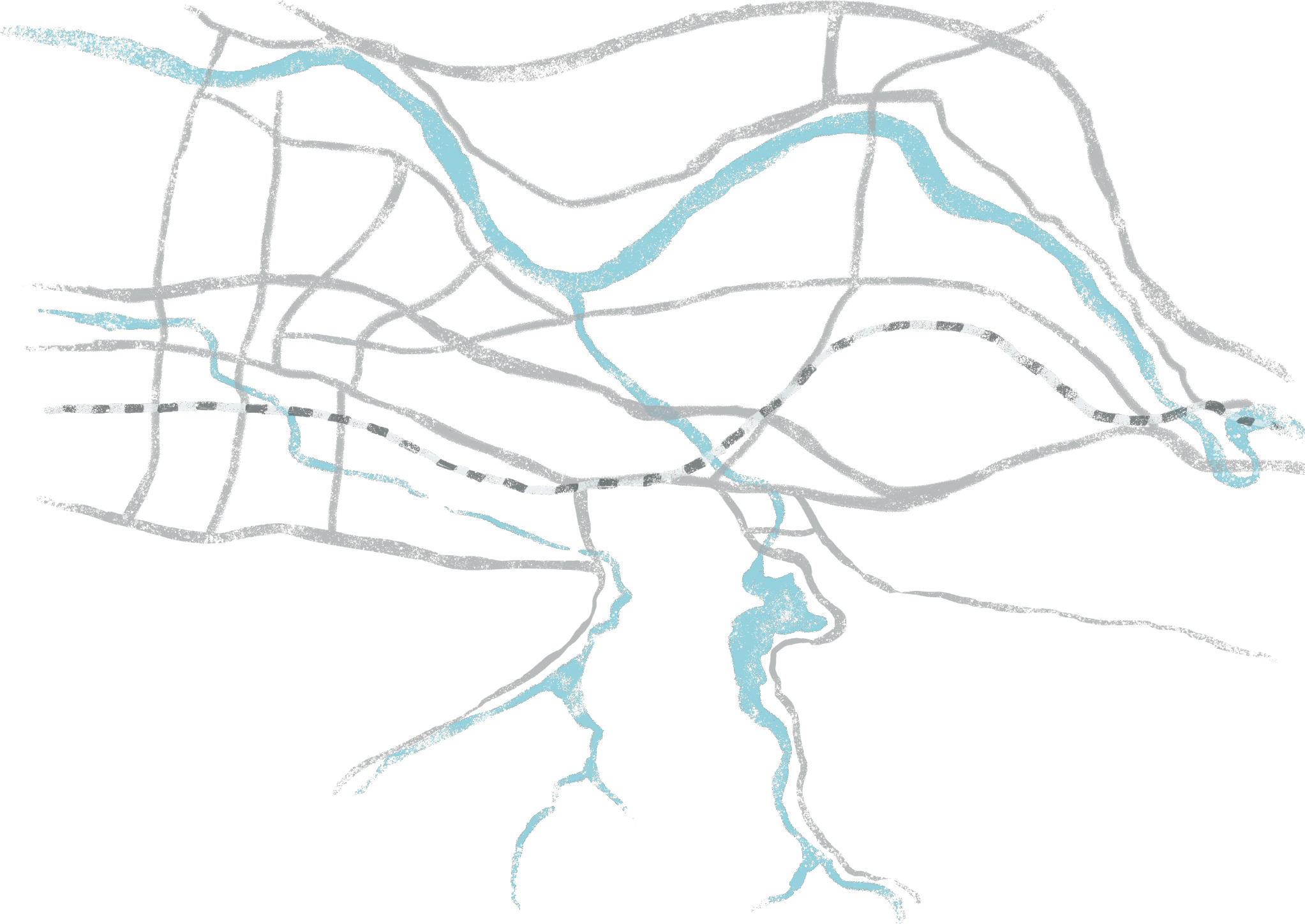
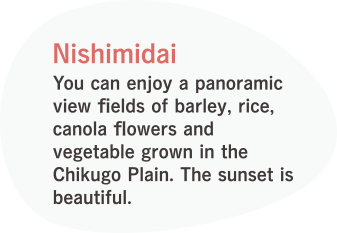
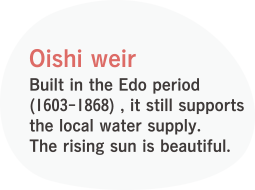
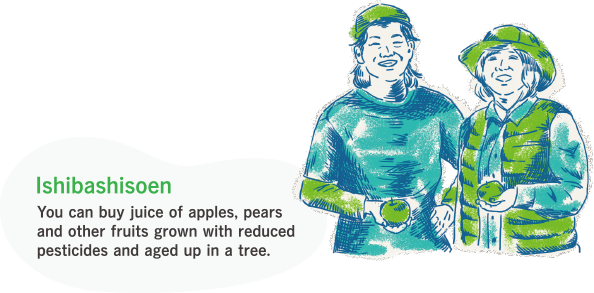
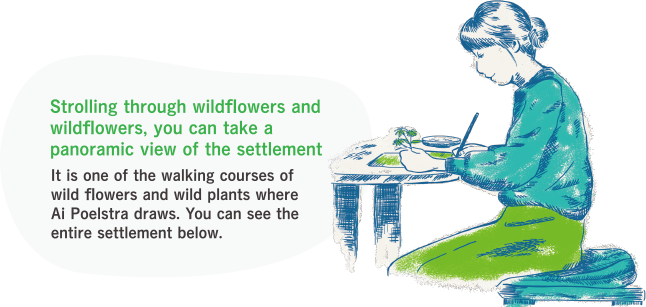
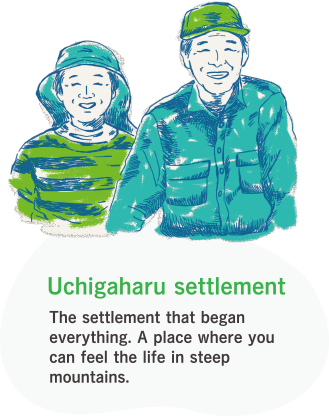
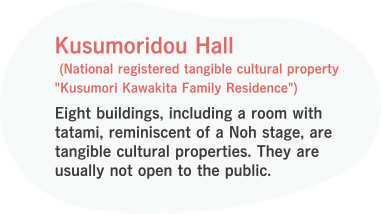
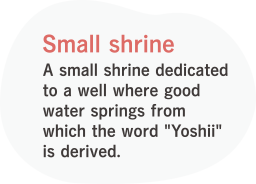
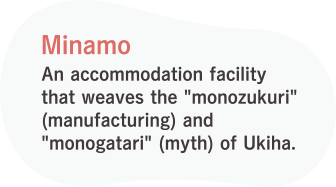
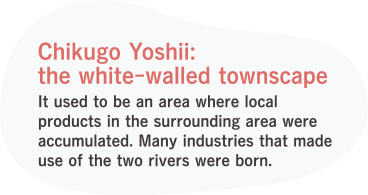
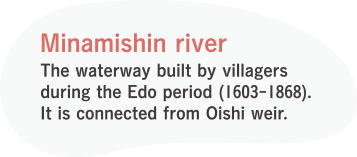
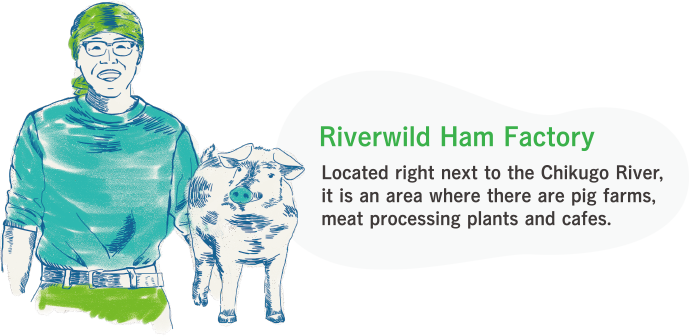
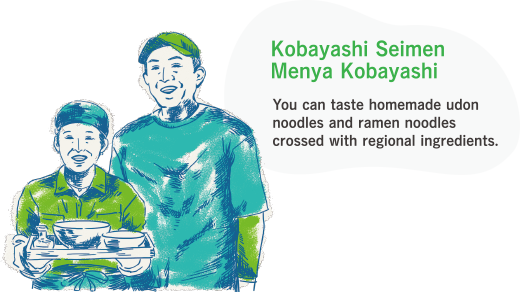
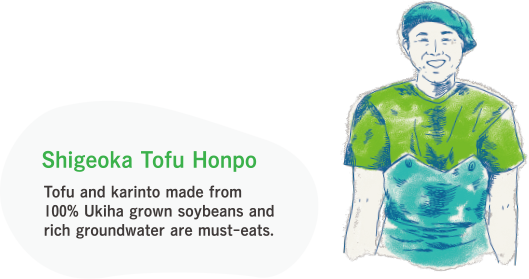
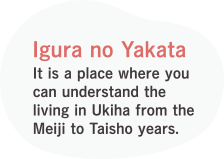
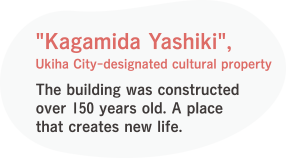
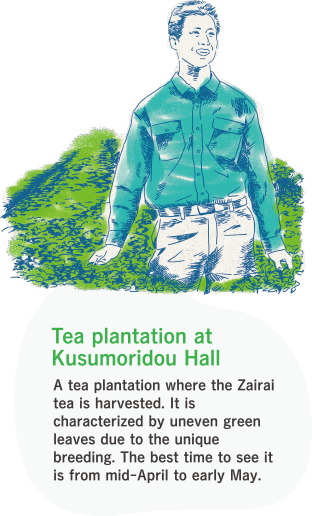





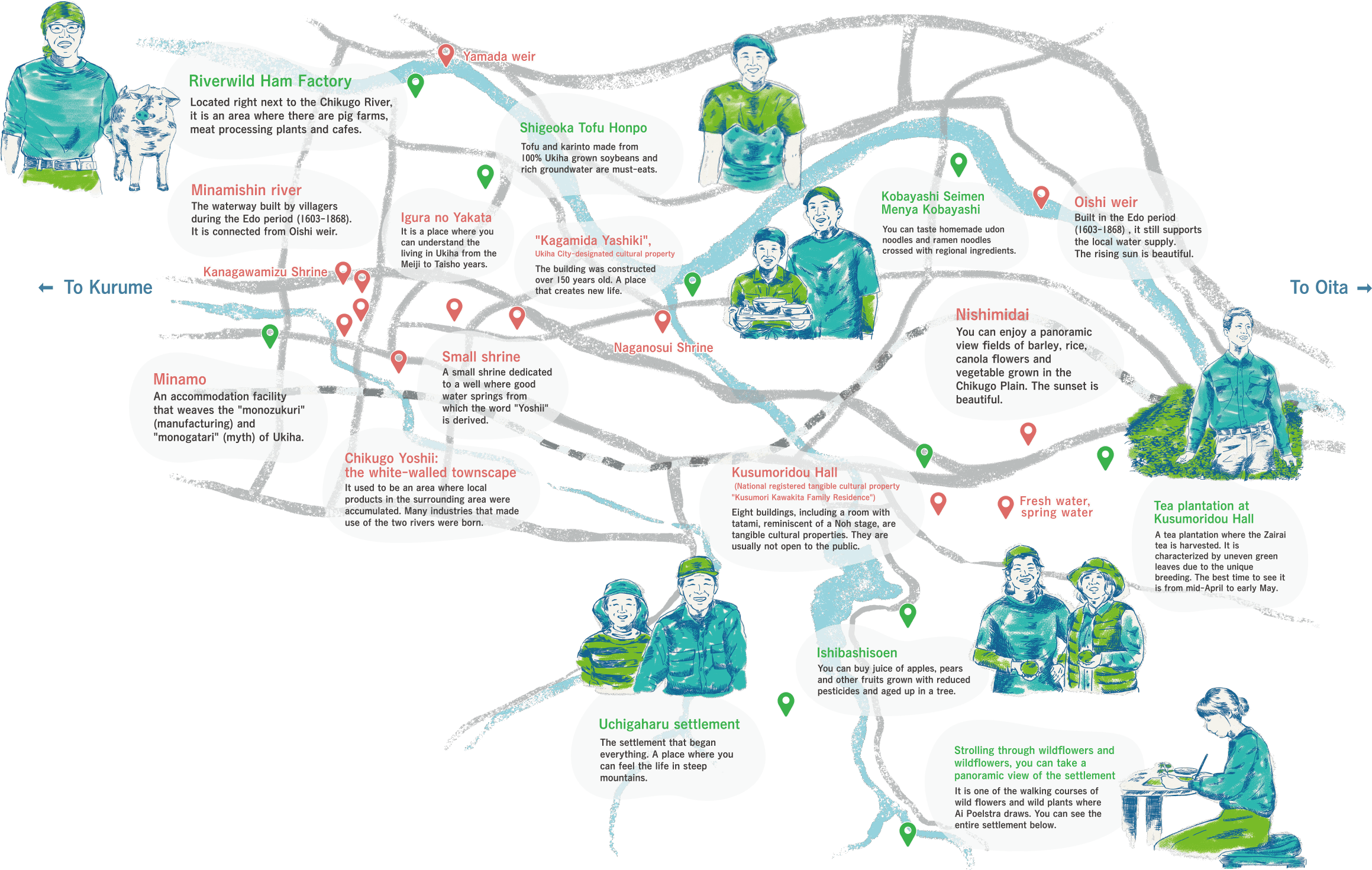
Copyright© tsumugi All Rights Reserved.
